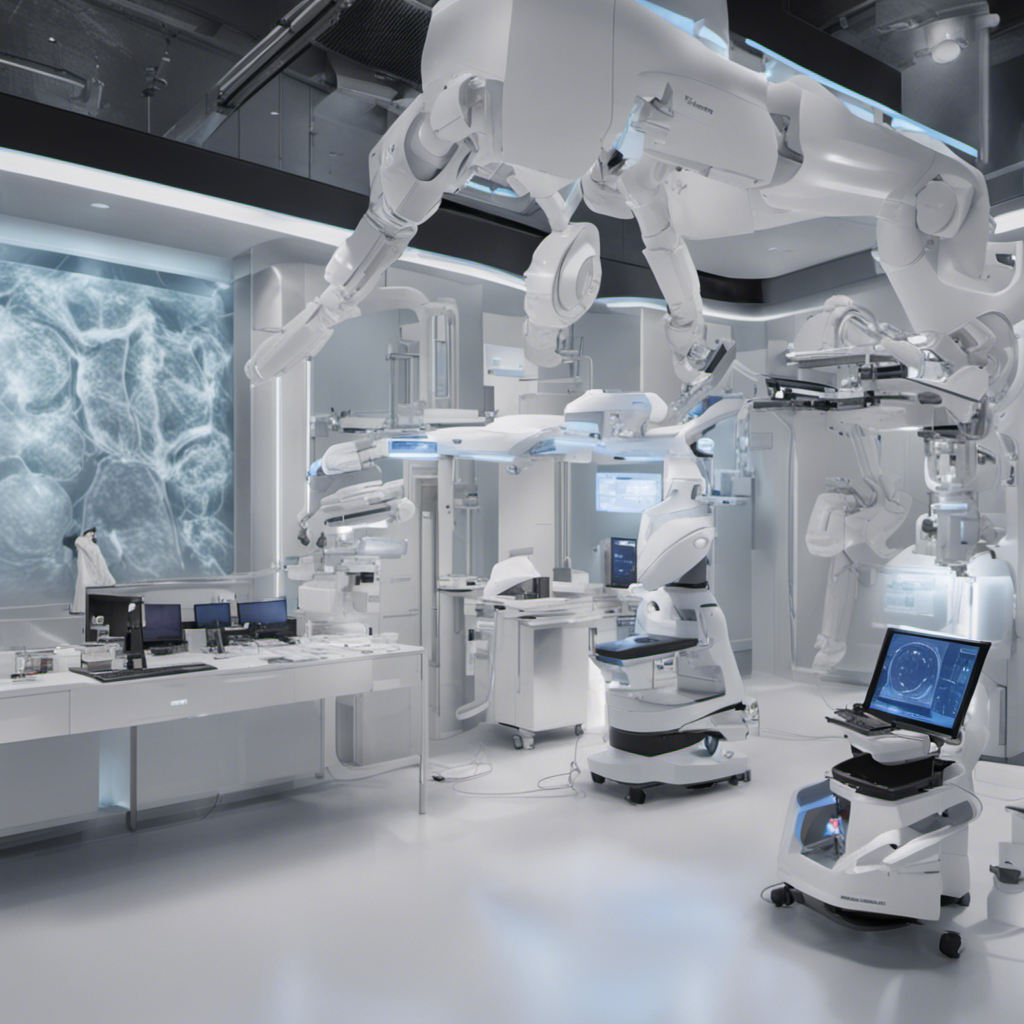
Artificial intelligence (AI) has emerged as a powerful tool in revolutionizing various aspects of healthcare. One area where AI has shown immense potential is personalized medicine. With its ability to analyze large amounts of data and draw meaningful insights, AI is poised to transform the way we diagnose, treat, and prevent diseases. In this blog post, we will delve into the role of AI in personalized medicine and explore its implications for the future of healthcare.
Understanding Personalized Medicine
Personalized medicine, also known as precision medicine, is an approach to healthcare that tailors medical treatment to individual characteristics, needs, and preferences. This method takes into account factors such as a person’s genetic makeup, lifestyle, environment, and medical history to provide more accurate diagnoses, predictive models, and targeted therapies. By moving away from the traditional one-size-fits-all approach, personalized medicine aims to improve patient outcomes and reduce healthcare costs.
The Power of AI in Personalized Medicine
AI algorithms have the ability to analyze large volumes of data quickly and efficiently, identifying patterns and making predictions that can assist healthcare professionals in making more informed decisions. When it comes to personalized medicine, AI plays a vital role in several key areas:
1. Early Disease Detection and Diagnosis
By analyzing a patient’s medical records, genetic information, and other relevant data, AI algorithms can help identify potential risk factors, detect diseases in their early stages, and predict disease progression. This early detection enables timely intervention and improves treatment outcomes.
2. Predictive Modeling and Prognosis
AI algorithms can be trained on vast amounts of patient data to generate predictive models and prognosis estimates. These models can help healthcare providers understand a patient’s risk of developing specific conditions, assess the effectiveness of different treatment options, and optimize patient care plans.
3. Personalized Treatment Plans
AI algorithms can analyze an individual’s genetic information, health records, and lifestyle data to develop personalized treatment plans. By considering a patient’s unique characteristics, AI can recommend the most effective interventions, medications, and therapies. This approach minimizes trial-and-error in treatment selection and improves patient outcomes.
4. Drug Discovery and Development
AI is transforming the pharmaceutical industry by expediting the drug discovery and development process. Machine learning algorithms can analyze vast amounts of biomedical literature and genomic data to identify potential drug targets and predict drug efficacies. This accelerates the development of novel therapies and brings them to market faster.
5. Remote Patient Monitoring
AI-powered wearable devices and sensors can continuously collect and analyze patient data, allowing for remote patient monitoring. These devices can track vital signs, detect abnormal patterns, and alert healthcare providers in real-time. This approach reduces the need for frequent hospital visits and enables early intervention when necessary.
Challenges and Ethical Considerations
While AI offers immense potential, it is not without challenges and ethical considerations. Some of the challenges include:
-
Data Quality and Privacy: AI algorithms heavily rely on high-quality, diverse, and representative data. Ensuring the privacy and security of patient data becomes crucial in the era of personalized medicine.
-
Algorithm Bias: AI algorithms may be biased based on the data they are trained on. It is essential to develop algorithms that are fair, transparent, and free from bias to ensure equitable access to personalized medicine.
-
Regulation and Verification: Given the rapidly evolving nature of AI technologies, regulations and guidelines need to be established to ensure the safe and ethical implementation of AI in personalized medicine.
-
Patient Acceptance and Trust: Widespread adoption of AI in personalized medicine relies on patient acceptance and trust. Appropriate communication and education are necessary to gain public confidence in the technology and address concerns related to privacy, security, and decision-making.
The Future of Personalized Medicine
As AI continues to advance and healthcare data becomes more accessible, the role of AI in personalized medicine is only set to grow. It has the potential to accelerate medical breakthroughs, enhance patient care, and improve health outcomes worldwide. However, it is important to strike a balance between technological advancements and ethical considerations to ensure that AI is deployed responsibly and for the greater benefit of patients.
In conclusion, AI has ushered in a new era in healthcare, particularly in the field of personalized medicine. By harnessing the power of AI algorithms, healthcare professionals can provide more accurate diagnoses, effective treatments, and improve patient outcomes. Despite the challenges and ethical considerations associated with AI implementation, the future holds immense promise for personalized medicine. As we continue to unlock the potential of AI, let us strive for a healthcare system that is truly patient-centered and driven by innovation.
References:
- National Institutes of Health. “What is Precision Medicine?” Link
- Topol, E.J. “High-performance medicine: the convergence of human and artificial intelligence.” Nat Med 25, 44–56 (2019). Link
Note: This blog post is for informational purposes only and should not be considered as medical advice. Consult with a healthcare professional for personalized medical recommendations.






